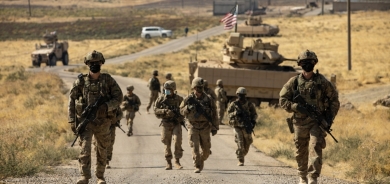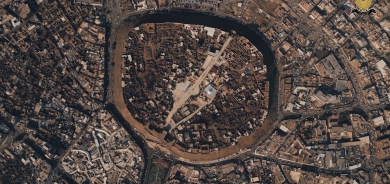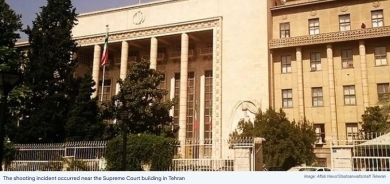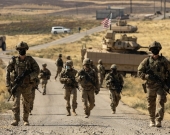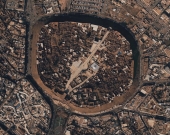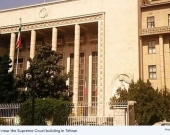Sudan president visits South amid efforts to end war

Bashir was greeted at Juba airport by South Sudan's Vice President James Wani Igga, before heading to the presidential palace for talks with his counterpart President Salva Kiir.
Bashir made no public comment, although Khartoum has reaffirmed Sudan's support for a "a peaceful resolution to the conflict", which has already left thousands dead and close to 200,000 displaced.
South Sudan won independence from Khartoum in 2011 after decades of war, but the north remains a key player in the young nation's affairs -- serving as the export route for the South's oil production.
The visit comes as fighting in South Sudan showed no sign of easing, with the capital experiencing more sporadic gunfire overnight and government forces saying they were massing to recapture several rebel-held towns.
Heavy fighting was reported over the weekend in oil-producing Unity and Upper Nile states in the north, as well as near rebel-held Bor, capital of Jonglei State just north of the capital.
Army spokesman Philip Aguer said it was only a "matter of time" before Bor was recaptured, although rebel spokesman Moses Ruai insisted that it was anti-government fighters who were advancing on the capital.
"Our forces are well organised. They are not just hit and run. The next target is now Juba but I cannot tell you exactly when they will attack Juba, but they are heading there," he said.
The conflict in South Sudan erupted on December 15, pitting army units loyal to Kiir against a loose alliance of ethnic militia forces and mutinous army commanders nominally headed by Riek Machar, a former vice president who was sacked last July.
Machar denies allegations that he started the conflict by attempting a coup, and in turn accuses the president of orchestrating a violent purge.
UN officials say they believe thousands of people have already been killed, and both sides are alleged to have committed atrocities. UN peacekeeping bases have also been overwhelmed with civilians seeking shelter, many of them fleeing ethnic violence between Kiir's Dinka community and Machar's Nuer tribe.
Peace talks expected to start
The ongoing fighting came as East African diplomats struggled to get both sides, who have sent negotiation teams to the Ethiopian capital Addis Ababa, to start formal negotiations on a ceasefire.
Officials said the chief negotiators for both sides held another face-to-face meeting on Sunday, and had finally agreed on an agenda for the ceasefire negotiations -- which are now expected to begin in earnest on Monday.
A key sticking point appears to be rebel and international demands that the South Sudanese government release 11 officials close to Machar so they can participate in the talks, aimed at putting in place a truce as well as ceasefire-monitoring mechanisms.
The South Sudanese government, however, has repeated that the rebel suspects would not be freed and should face justice.
US Secretary of State John Kerry has urged rival southern factions not to use the Addis talks for buying time.
"Negotiations have to be serious, they cannot be a delay, (a) gimmick in order to continue the fighting and try to find advantage on the ground at the expense of the people of South Sudan," Kerry told reporters on Sunday while on a visit to Jerusalem.
The United States, which was instrumental in helping South Sudan win independence, urged South Sudan's government to "release political detainees immediately".
Ethiopian government spokesman Getachew Reda said brokers were trying to convince South Sudan's government to release the 11 detainees as a "goodwill gesture" and that a possible compromise could be for the detainees to be transferred to IGAD custody.
AFP


